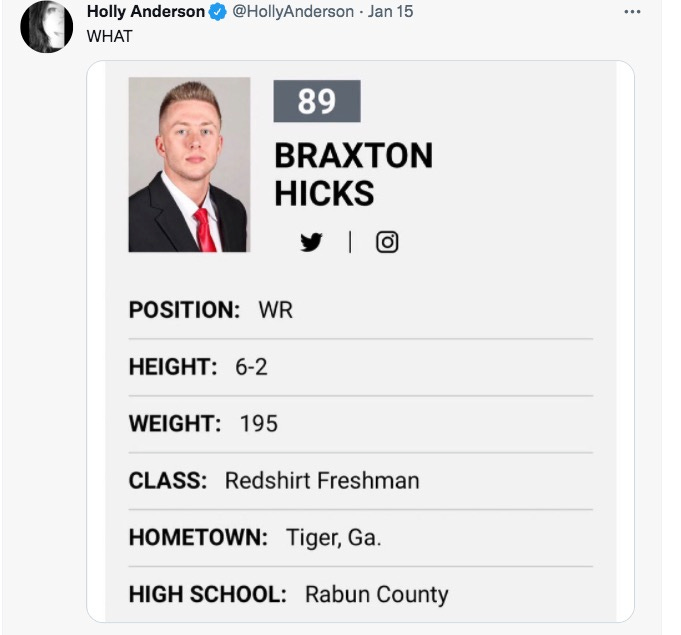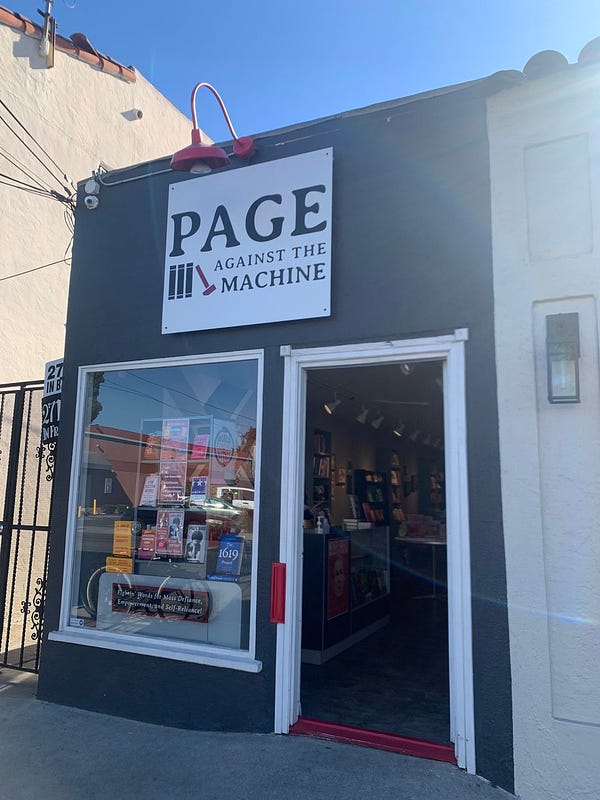To read this issue in your browser, click on the headline above.
I still can’t tell from the reporting and proclamations just what this Chicago Public Media (WBEZ-FM 91.5) acquisition of the Sun-Times is going to mean in terms of, you know, actual journalism. I’d thought/hoped that the two fine newsrooms were going to merge, but the announcement last week from WBEZ said, “the newsrooms will operate separately with their own editors and maintain their editorial independence.”
But then it added:
WBEZ and the Chicago Sun-Times will broaden their impact by sharing content from both newsrooms across more platforms — broadcast, print, websites, podcasts, newsletters, mobile apps, social media, and community engagement and live events.
But “sharing content” is something that local news shops have been doing for a while, and there is no obvious need for an elaborate acquisition/merger to make it happen. I’m willing to be pleasantly surprised, but right now this looks like a grand gesture filled with flowery but vague rhetoric designed to attract the interest and money of philanthropically minded organizations.
About those organizations, a Tribune editorial last week fretted about the presence on the new Sun-Times board of directors of Kristen Mack, the managing director for communications for the MacArthur Foundation, and the fact that the recent chair and current member of the WBEZ board, Bryan Traubert, is the husband of former U.S. Commerce Secretary Penny Pritzker, who is the sister of Gov. J.B. Pritzker. The Pritzker Traubert Foundation is backing the deal.
We’ve no reason to believe any of these high-achieving Chicagoans will impede editorial independence, but wise heads will look for certitude. Penny Pritzker, who has many talents, could run again* for office or occupy a key government position in a future J.B. Pritzker administration. What happens then?
And has Mack attested that MacArthur, a cultural powerhouse and gatekeeper in progressive circles, won’t interfere with any future Sun-Times reporting on itself? Transparency will be required, as will some promise of fairness toward Republican points of view.
Oh please! Randall Smith, a co-founder of the Alden Global Capital hedge fund that owns the Tribune, is a big-dollar Trumpkin who made "two $50,000 contributions to Trump Victory,” as NewsGuild has reported. “This was then divvied up between the Trump campaign and the Republican National Committee, with a note on the Federal Election Commission’s site that the RNC cut came from Trump Victory.”
Shall we therefore demand fairness toward the Democratic point of view from the Tribune? Or shall we respect that these newsrooms are staffed by reporters and editors of integrity who will raise hell and drop dimes if they start getting assignments from partisans at the top of the corporate food chain?
*Penny Pritzker has never run for public office
Notes and comments from readers —lightly edited —- along with my responses
King E. — In my opinion the actions taken by UIC and the black students groups against Prof. Kilborn illustrate precisely why the woke culture will generate a significant backlash in the forthcoming U.S. elections.
While I try to stay away from the word “woke” — it’s just an updated version of “politically correct,” which I also didn’t like for the way it sneered at those who simply wanted to address people in ways they wished to be addressed — I suspect your prediction has merit.
On the other hand, I would certainly hope that the crazy right’s unblinking embrace of deranged narcissist Donald Trump would generate a similar if not stronger anti-GOP backlash among decent, moral minded moderates and conservatives.
Yes, the crazy people on the left want to bring down those who deviate from liberal orthodoxy in matters of nomenclature or deference to minorities of any sort, but the crazy people on the right want to bring down democracy itself. To me, the distinction is vast and the choice ain’t hard.
Joe P. — A Wall Street Journal editorial reported A Rasmussen poll last week reported that 59% of Democratic voters would support a government policy confining the unvaccinated to their homes, except for emergencies. Nearly half (48%) of Democratic voters also thought the governments should be able to fine or imprison individuals who publicly question the efficacy of vaccines on social media.” Did you ever think you would see this in America?
Oh, I dunno, did you ever think you’d see in America a Republican party in which 56% of adherents declare, against a mountain of evidence to the contrary, that the 2020 presidential election was “stolen” from Donald Trump, per an Ipsos/Reuters poll? Or where 54% tell pollsters they ascribe to the certifiably insane notion that the Jan. 6 riot at the U.S. Capitol “was led by violent left-wing protestors trying to make Trump look bad.”?
Democrats’ approval of these harsh notions reflects the growing anger and frustration of those who have done the responsible, community-minded thing and been vaccinated against COVID-19. Their support of draconian crackdowns is an artifact of their malevolent feelings for those who are crowding our hospitals and prolonging this dreadful pandemic based on their goofy, selfish, unscientific beliefs or pure churlish partisan stubbornness.
Mandatory vaccines to guard public health have been common for generations, and if the resisters were simply dying off in greater numbers on their own with no impact on the rest of us, I’d shrug at their ignorance and make arch remarks about karma. But when your intransigence starts impinging on my freedoms, I look around for tactics that might motivate you.
These measures won’t be enacted — the questions seem almost designed to elicit splentic responses — so all you should take from the poll results is that sensible people are fast losing their patience.
Ron C. — My thoughts on the human composting issue: I can think of several people, including some public figures, that would be ideal candidates for this, as, everyone knows, they are full of shit!
Heh. But in all seriousness, those who are squicked out by the idea of their food growing in compost material that includes thoroughly decayed human remains need to pause and consider what for years has gone into the fertilizers and compost in gardens and farms.
LW — If you are Catholic and don’t want your remains to be composted, then specify that in your final wishes. But don't force your religious objection to the process on those us who are not of the same faith. And how can the church allow cremation but not composting? Cremation does not leave behind a body to be resurrected.
I was hoping to receive some serious feedback from theologically minded objectors who could make a principled distinction between forms of burial, but so far I’ve heard nothing. Again, my view is that I find great symbolic beauty in the idea of human composting.
Thom C. — Imprisoned former Ald. Ed “Fast Eddie” Vrdolyak has always had a fragile grip on reality. How do we know he’s really ailing when his lawyers ask the courts to release him because he has Alzheimer’s disease? And should other dementia inmates get early release dates too?
All prisoners experiencing profound dementia should be released from confinement and given human end-of-life care no matter how grave their offenses were. That’s my opening position as someone who has seen the ravages of dementia up close. Keeping someone locked up who has no memory of his or her crime and no capacity to form the intent to carry out a new crime is pointless and expensive, not to mention inhumane and immoral.
I don’t want to push this analogy too far, but it’s a bit like the ancient, savage practice of defiling the corpses of executed criminals — driving stakes through their hearts after death, quartering them, leaving to rot in the public spaces and so on.
I don’t pretend to know the line between prisoners who have frequent senior moments and those who have functionally lost their memories, nor do I know how clinicians and other observers could distinguish between those actually experiencing profound dementia from those faking it. But these are details to be worked out, not insurmountable obstacles to the sort of change I propose.
Karen C. —Your aside about Justice Anne Burke was unfair. (“The Illinois Supreme Court’s three Republican justices joined with Democratic Justice Anne Burke to reject the petition that would likely have resulted in a longer sentence for Jason Van Dyke) without comment. Burke is married to indicted Ald. Ed Burke, 14th. Make of that what you will.” ) Justice Burke has enjoyed a long and excellent career as a public servant: Chair of the National Review Board relating to clergy abuse, the founder of Special Olympics, and the list goes on. Why do you assume that a female judge cannot make up her own mind on matter of law without having husband tell her what do? What you insinuate would be breach of judicial ethics, (discussing the merits of a case with a third party). Your off-hand comments minimize her and all women professionals. All with no facts to back it up. If Joe Biden -- I mean President Biden--initiated legislation about an educational issue, I'll bet no one would say, "Well, consider he's married to that teacher, Jill.
A trial judge in a killer cop case in effect gave the finger to Illinois Supreme Court precedent at sentencing, and Burke joined the three Republican justices on the court in turning back without comment Atty. Gen. Kwame Raoul’s effort to overrule the judge. My dismay has nothing to do with Justice Burke being a woman. She joined in an appalling decision that just might be connected to the fact that her spouse will be hoping for a light sentence himself should he be convicted or the fact that Ald. Burke used to be a cop and has long shown cop sympathies. Who knows? Burke didn't explain herself. Neither did the others, but the fact that they're all Republican aside from her ought to raise some eyebrows.
Lynne T. —If you could remove all possibility of injustice, mistake or bias from the imposition of the death penalty, would the death penalty be morally justified? Your comments make it appear that you would be comfortable with capital punishment in those circumstances. I am not.
If capital punishment were a proven deterrent to murder, would that change the equation? Perhaps, but it's almost a little “Minority Report”-ish. The state would be punishing one person to prevent future crimes by another person.
Sister Helen Prejean's experience is that, TV crime shows to the contrary, execution of the criminal does not provide anyone "closure" or make them feel better.
It would be a closer call for me if there were some way to remove the possibility of error. The state already does punish people in ways designed to prevent future crimes by others — deterrence is one of the four main purposes of punishing criminals; incapacitation, rehabilitation and retribution are the others — but since there’s no evidence that capital punishment lowers the overall level of capital crime, we need not argue that point. And I don’t know the statistics, but anecdotally I know that some family members of victims do feel a greater sense of closure after executions.
Even still, though, we’d be left with a system that imposes significant extra costs on society — believe it or not, it costs millions more to go through the entire process of executing someone than it does to simply lock them up for life — and gives back nothing tangible in return. Yet I can’t totally discount the demand, the desire for harsh retribution against those who commit the worst crimes. I think it would be only fair for the vicious killers who heard Bradley Police Sgt. Marlene Rittmanic beg for her life as they stood over her and then pulled the trigger anyway to feel the same fear of impending death, the same terror, and then to suffer a similar fate.
But I never claimed to be high-minded.
Meet the Rascals: Heather Cherone
Heather Cherone, 43, joined the regular Mincing Rascals podcast crew in September 2019. She’s been the political reporter for WTTW-Ch. 11 since April 2020. Before that she was the managing editor and City Hall reporter for The Daily Line, a subscription newsletter on Chicago and Illinois politics. She’s also worked at four daily newspapers and internet startup DNAinfo. She’s a graduate of Kenwood Academy in Hyde Park and has undergraduate and graduate degrees from Northwestern University’s Medill School of Journalism.
ERIC ZORN: I want to start this interview before the point at which your résumé begins. Where were you born? Where did you grow up?
HEATHER CHERONE: I grew up in Chicago, right on the lake in the Edgewater neighborhood. I spent much of my childhood in Loyola Park (near the intersection of Touhy Avenue and Sheridan Road) And I’m old enough that I predate the Chicago Public Schools selective enrollment system. So after I graduated from Decatur Classical Elementary — a magnet school in the West Ridge neighborhood — I had to choose between Kenwood Academy, Whitney Young High School or Morgan Park High School. I chose Kenwood even though it was far south and we were far north because my mother was working as a nurse at the University of Chicago Hospital at the time so I could catch a ride with her in the morning and then come home via the CTA, which was actually a really great way to get to know the city.
EZ: Going to your neighborhood high school wasn’t a possibility?
HC: That would have been Senn High School, and back in those days it was considered a sort of a rough place and was never part of the discussion for us .
EZ: Any siblings?
HC: One. I have a younger brother who is far more accomplished than I am. He’s a captain in the Marine Corps currently deployed in South Korea.
EZ: Given that Kenwood Academy and UChicago really are on the other side of the city, did your family ever think of moving?
HC: We never really thought about it. Also, I was lucky to live close enough to a teacher and a coach on Kenwood swim team so sometimes I could catch a ride with her to early-morning practices. When it wasn't swim season I spent most afternoons after school working for New Expression, a not-for-profit paper for Chicago public high school students. That was my first exposure to covering the city as a whole as opposed to just covering Kenwood -- because of course I was very involved in the student newspaper there, and by the time I was a senior in high school I had made all of my friends join the paper so I could have a staff.
EZ: What was it about journalism that excited you?
HC: I was one of those annoying 5 year olds who, when grown-ups would ask me, ”What do you want to be when you grow up?” instead of saying “a ballerina” or something, I’d say, “ I'm going to grow up and be a journalist.” And they were like okay sure. But I grew up reading the Sun-Times. I grew up reading the Tribune I grew up watching Bill Kurtis and Walter Jacobson every night along with Dan Rather. I was a naturally nosy kid and I thought it was a pretty good deal to get paid to ask people rude questions so I was, like, yes. that sounds like what I would like to do. And I knew that I liked to write. I was always one of those kids who was writing stories. Then when I was a sophomore in high school I had an English teacher and she recommended that I do a summer program at Northwestern for aspiring journalists.
So I ended up going to Northwestern and worked as hard as I could to get through school and get a job as soon as possible. My first professional journalism job was while I was still in college --- I was the night police reporter for the Daily Herald in Arlington Heights. I ‘d finish class, eat dinner and then drive from Evanston to Arlington Heights and I would work until 1 a.m. or maybe even a little later reporting on crime and assorted misdeeds in the suburbs.
For school we had to go on reporting internships, so I decided to get as far away as possible. Most of my life had been spent on or around Sheridan Road -- I grew up near there and my first dorm at Northwestern was on Sheridan . So I ended up in California, at the Orange County Register.
I went back to the Register that next summer and ended up getting a job at the Los Angeles Daily News right after college through connections with an editor at the Register. And that’s how I ended up in California from 2000 until 2007.
The Oakland Tribune was owned by the same conglomerate at the Daily News, so that gave me a foot in the door when the Oakland Tribune had an opening to cover Jerry Brown’s second term as mayor of Oakland. I got that job and it was a lot of fun. He was an interesting dude.
EZ: What else was going on in your life at that point?
HC: I was living with my future husband, who moved to Los Angeles to be with me after finishing two years in the Peace Corps.
EZ: Where did you meet?
HC: In high school. He is also a graduate of Kenwood Academy. And let me tell you, there are two types of people in this world: People who say “Aww, that's so great you married your high school boyfriend,” and people who say “You married your high school boyfriend? That’s gross.”
EZ: Well, my parents dated when they were in high school in the late 1940s and they’re together more than 70 years later, so it certainly can be done! Did he go to Northwestern with you?
HC: No, he went to the University of Illinois. We didn't start dating until late in our senior year at Kenwood, so by then he was already committed to U of I and I’d had my heart set on the Medill program at Northwestern for a long time. So we did the long-distance thing.
After he graduated from college he joined the Peace Corps and I moved to Los Angeles, then when he was done with the Peace Corps I was still living in Los Angeles so he came to visit me and never left. And now we have two kids and a house in Park Ridge and a bird feeder.
EZ: What does he do?
HC: He’s a sales consultant for Follett Corporation, the textbook company. Before that he was an elementary and middle school teacher for many years.
EZ: How old are your girls?
HC: They’re 12 and 9, so I’m in the thick of middle school drama. And if somebody had told me hey, if you have kids, you’ll have to go through middle school and high school again but this time it will be more painful because you’ll have to suffer the most precious human being in the whole world going through it, I might have had second thoughts.
EZ: I know being a parent is a lot of work and your job is very demanding, but do you have time for other things? Are you still swimming? Have any hobbies?
HC: I don’t swim anymore. I have very few hobbies. I work way more than I should.. I love to read and I do love murder mysteries. Once upon a time I did a lot of sewing and crafting projects but that's really hard when you have little babies and toddlers climbing all over you. But every year my New Year's resolution is to work less and relax more. It’s not looking good so far for 2022.
EZ: Picking up your story in Oakland. Where did you work first when you came back to Chicago?
HC: I went right to the Tribune where they were planning to cover the suburbs in a different way, and I was part of that effort . I covered Downers Grove and Hinsdale and all sorts of different suburbs for them . The Tribune signed on with a firm called Journatic that outsourced that coverage, and so I was let go. At the time I was also freelancing and working as an adjunct professor of journalism at DePaul University. So I thought, well, maybe I won't do journalism anymore; maybe I'll just teach journalism. But right around then, DNAinfo launched and I ended up there. It lasted longer than I expected, from 2012 until it imploded in 2017. Then I freelanced and ended up at the Daily Line for a couple of years. Then to WTTW.
EZ: How did that job come about?
HC: They came to me. I was lucky enough to become sort of a regular on “Chicago Tonight, The Week in Review,” and I guess they thought “Hey she's not terrible on television.” And I fit into their plans to expand their political coverage. So I started with them just as the pandemic was taking over everyone’s lives It was a pretty crazy time to start a new job.
EZ: I think the first time I ever heard you was on “Connected to Chicago,” the WLS-AM 890 news roundup show/podcast that you still appear on nearly every week.
HC: Yes, one of the most “pinch-me” moments of my career was when the show’s host at that time, Bill Cameron, who’d been covering City Hall for like 50 years, came up to me and said, “Hey, you seem to know what you’re talking about, come on my show.” So now I get to talk with people like Lynn Sweet, Greg Hinz, Fran Spielman and Ray Long.
EZ: And we get to talk with you on “The Mincing Rascals.” Thanks, Heather.
Subscribe to the Mincing Rascals wherever fine podcasts are served.
Earlier: Meet the Rascals: Austin Berg
Ya’ gotta see these tweets!
I often run across tweets that are too visual in nature to include in the Tweet of the Week contest (the template for the poll does not allow the use of images). Here are a few good ones I’ve come across recently.
Only those who remember the 1995 movie “Clueless” will get this one:

(above CAPTCHA spoof via Jeff Maurer (@JeffMightBWrong)
There is still time to vote in the current Tweet of the Week poll, where the race is unusually close at the top.
Thank you for supporting the Picayune Sentinel. To help this publication grow, please tell friends, family, associates, neighbors and agreeable strangers that they really ought to subscribe, c’mon!






















Heather Cherone interview is interesting and helpful. Just the kind of info I want to know so I can guide my middle school students. Thank you for emphasizing her educational career.
Thanks for the Cherone interview -- heard/saw her many times, nice to "meet" her via PS. I had similar journalistic dreams -- same age. I too watched Kurtis and Jacobson as a kid and read the papers and thought all that was exciting and interesting and romantic. I subsequently got a little taste of the life -- Medill cherub program (cover the parade!), Daily Northwestern (school board meetings! arraignments! will they build the parking garage?!), lady friend interning at the Toledo Blade (Toledo!) -- and got less of a taste *for* the life. I've always admired journalists' work ethic and professionalism in the face of not very much money and less thanks.
Incidentally, "Assorted Misdeeds in the Suburbs" would make an excellent title for something, I'm thinking true crime podcast?